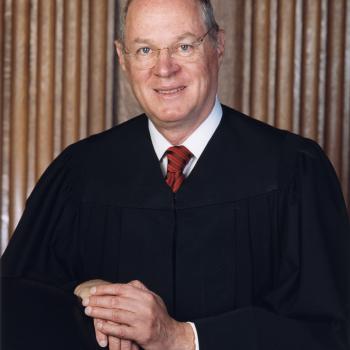As the New York Times reports, “Alabama’s governor on Wednesday signed into law a measure to ban most abortions in the state. But the Legislature’s approval and the governor’s signature did not immediately outlaw the procedure, and it is far from clear when, or even if, the measure will ultimately take effect….
“The bill that the Republican-controlled Legislature overwhelmingly passed sought to prohibit abortions at every stage of pregnancy. It includes an exception for cases where a woman’s health is at ‘serious’ risk, but lawmakers rejected a proposal to add exceptions for cases of rape or incest.
 “Women who have abortions will not be prosecuted under the measure, but, if the courts allow the law to stand, doctors could be charged with a felony and face up to 99 years in prison for performing the procedure.
“Women who have abortions will not be prosecuted under the measure, but, if the courts allow the law to stand, doctors could be charged with a felony and face up to 99 years in prison for performing the procedure.
“A Senate vote on Tuesday night moved the proposal to Gov. Kay Ivey, a Republican, who signed the legislation on Wednesday afternoon.” [1]
This is, of course, in accord with Catholic teaching, which tells us that “Human life must be respected and protected absolutely from the moment of conception. From the first moment of his existence, a human being must be recognized as having the rights of a person—among which is the inviolable right of every innocent being to life.” (Catechism of the Catholic Church, No. 2270) [2]
And it is not a matter of indifference how the law treats the matter.
“The inalienable right to life of every innocent human individual is a constitutive element of a civil society and its legislation:
 “’The inalienable rights of the person must be recognized and respected by civil society and the political authority. These human rights depend neither on single individuals nor on parents; nor do they represent a concession made by society and the state; they belong to human nature and are inherent in the person by virtue of the creative act from which the person took his origin. Among such fundamental rights one should mention in this regard every human being’s right to life and physical integrity from the moment of conception until death.’
“’The inalienable rights of the person must be recognized and respected by civil society and the political authority. These human rights depend neither on single individuals nor on parents; nor do they represent a concession made by society and the state; they belong to human nature and are inherent in the person by virtue of the creative act from which the person took his origin. Among such fundamental rights one should mention in this regard every human being’s right to life and physical integrity from the moment of conception until death.’
“’The moment a positive law deprives a category of human beings of the protection which civil legislation ought to accord them, the state is denying the equality of all before the law. When the state does not place its power at the service of the rights of each citizen, and in particular of the more vulnerable, the very foundations of a state based on law are undermined. . . . As a consequence of the respect and protection which must be ensured for the unborn child from the moment of conception, the law must provide appropriate penal sanctions for every deliberate violation of the child’s rights.’” (Ibid, No. 2273) [3] [4]
Yet we should not derive from this that abortion in all cases carries with it the same level of individual culpability. As St. Pope John Paul II wrote, “Decisions that go against life sometimes arise from difficult or even tragic situations of profound suffering, loneliness, a total lack of economic prospects, depression and anxiety about the future. Such circumstances can mitigate even to a notable degree subjective responsibility and the consequent culpability of those who make these choices which in themselves are evil.” (Evangelium vitae, No. 18) [5] It follows that a truly pro-life legislative approach to abortion would not only contain prohibitions, but also seek to eliminate the mitigating circumstances that the Holy Father wrote about.
But as the Alabama Senate passed its abortion legislation, it also “refused to consider amendments that would…provide health care for the mothers who were denied abortions.” [6] Because of the particular issues faced by indigent women, “State Senator Linda Coleman-Madison proposed an amendment to the bill that would require the state to provide free prenatal and medical care for mothers who had been denied an abortion by the new law. Her amendment was struck down by a vote of 23-6.”
 The Alabama Senate’s action in striking down the amendment gives the stark impression that, for them, concerns about human life take second place (if that) to their devotion to the kind of social principles exemplified by Ayn Rand, a pro-abortion atheist. Instead of passing a measure that would have helped to alleviate the suffering encountered by women confronting the abortion decision, they genuflected before the altar of social Darwinism.
The Alabama Senate’s action in striking down the amendment gives the stark impression that, for them, concerns about human life take second place (if that) to their devotion to the kind of social principles exemplified by Ayn Rand, a pro-abortion atheist. Instead of passing a measure that would have helped to alleviate the suffering encountered by women confronting the abortion decision, they genuflected before the altar of social Darwinism.
If we really want to eliminate abortion from our country, we must remove the social conditions that incentivize it. Our continuing failure to do so implicates all of us.
The icon of St. Joseph the Worker is by Daniel Nichols.
Please go like Christian Democracy on Facebook here. Join the discussion on Catholic social teaching here.











